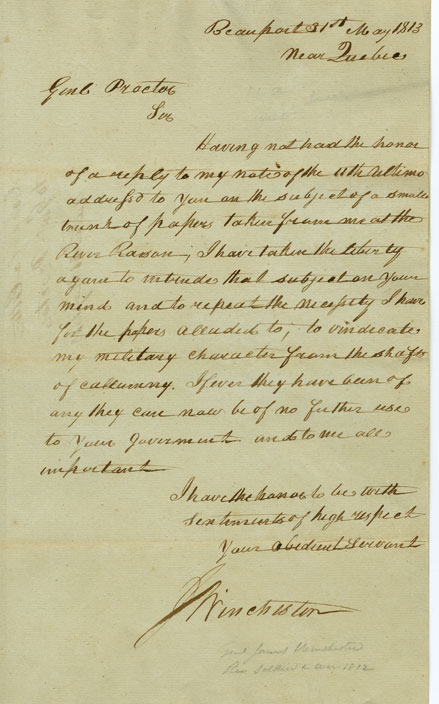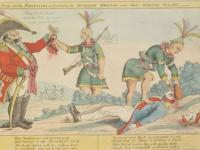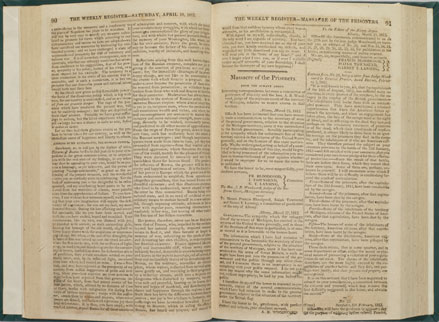June marked the 200th anniversary of the start of the War of 1812. Here in the Delaware Valley area, many are familiar with some of the more-famous War of 1812 events, such as the bombing of Fort McHenry in Baltimore, Maryland; the burning of the Capitol at Washington, D.C.; Francis Scott Key and “The Star-Spangled Banner”; and various maritime battles. Yet few recall the seminal skirmishes or major battles that occurred within the Old Northwest during the conflict.
Today, in what is now Monroe, Michigan, is the River Raisin National Battlefield Park. It is the only National Battlefield Park or site in the United States that is devoted exclusively to a battle of the War of 1812. “Remember the Alamo" strikes a familiar chord to most Americans, but “Remember the Raisin" has been largely forgotten, even though the battle here had the largest number of American casualties of the war.
The War of 1812 was largely fought in the South and the Great Lakes region, and a large contingent of troops were volunteers from the state of Kentucky. Some 25,000 Kentuckians participated in the conflict, and of the 1,876 Americans killed during the war, roughly 1,200 hailed from the Bluegrass State. Lt. Oliver Hazard Perry utilized Kentucky troops as ship-based marines at the Battle of Lake Erie and at the Battle of New Orleans. Kentucky and Tennessee sharpshooters won a resounding victory under the command of Andrew Jackson.
 The Battle of Frenchtown or the River Raisin took place from January 18 to 23, 1813. British forces under the command of General Henry Proctor with his Native American allies fought a bitter engagement against Brig. Gen. James Winchester. A Maryland native and Revolutionary War veteran, Winchester was in command of the left wing of the Army of the Northwest under William Henry Harrison. During the battle, Winchester was captured and his army forced to surrender. Though the American forces were promised protection for prisoners and aid to the wounded, the British permitted the Indians to murder their Kentucky captives. Many eye-witness accounts exist for this event. Winchester was imprisoned in Canada for more than a year.
The Battle of Frenchtown or the River Raisin took place from January 18 to 23, 1813. British forces under the command of General Henry Proctor with his Native American allies fought a bitter engagement against Brig. Gen. James Winchester. A Maryland native and Revolutionary War veteran, Winchester was in command of the left wing of the Army of the Northwest under William Henry Harrison. During the battle, Winchester was captured and his army forced to surrender. Though the American forces were promised protection for prisoners and aid to the wounded, the British permitted the Indians to murder their Kentucky captives. Many eye-witness accounts exist for this event. Winchester was imprisoned in Canada for more than a year.
Pictured above is a letter written by James Winchester to General Henry Proctor. Winchester wrote the letter, which is dated May 31, 1813, during his imprisonment in Canada.
Kentucky native Lt. Isaac L. Baker was present at the Battle of Frenchtown and later taken to Detroit. Within his published narrative of the events, he remarked how after the surrender of the Kentucky troops, about half of the forty men he was with were massacred. He was then brought back toward the river where he saw the “dead bodies of my fellow-comrades, scalped, tomahawked and stripped, {which} presented a most horrid spectacle to my view.” He learned the next day that “some of the wounded had been scalped alive and burnt in the houses,” where they’d been placed after their capture, and after “making enquiry about the massacres…found that 60 had been massacred…after they had surrendered.” This account of the event was taken from the Niles Weekly Register, shown below.
When they learned of this atrocity, thousands more Kentuckians volunteered for service. They played a large part in the series of battles in the Northwest culminating in the defeat of the British and their Indian allies at the Battle of the Thames, or Moraviantown, on October 5, 1813. Among the casualties was Shawnee Indian Chief Tecumseh. The victory helped secure the Northwest Territory for the remainder of the war. Currently nine of Kentucky’s 120 counties (Allen, Ballard, Edmondson, Graves, Hart, Hickman, McCracken, Meade, and Simpson) are named for soldiers who fought and died at the Raisin.
The Battle of the Thames and the death of Tecumseh



